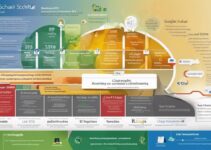So like the driver in the previous illustration, he thinks of and enjoys the benefits of traveling; and the idea of reaching his destination. A learner can do the same in order to continue learning. And of course, his capacity of learning must be tapped in the right time, right place, and under the right circumstances.
Capacity
I believe that it’s not only the intellectual capacity that can determine learning. There are other capacities which I would like to include such as physical, emotional and financial.
No matter how intelligent a person could be, if he is not physically healthy to do the required tasks for his course, he may stop learning. How could he be a nurse if he could not burn the midnight oil? Could he stay awake for a straight 24-hour service to the sick in the hospital?
Next is the emotional maturity of a person. Is he capable of being challenged or “tortured” by professors? Is he not easily affected by problems?
In language learning, we call it affective filter hypothesis. If the affective filter is up, no learning can take place. So in order for learning to take place, the learner must be emotionally mature to deal with all the problems that will come along his way.
Lastly, financial capacity matters. How can he support his study? How can he submit assignments and projects if he has no money for internet fee and other stuff? Thus, money plays a major role in order to learn.
I would like to cite an example. David, not his real name, is intelligent. He could be an engineer. He has a high motivation to learn or to be in college but the parents, though not so poor, were unable to support him financially. As a result, he stopped studying and helped his parents earn a living.
Action
Action is also important to learning. If you won’t do something or act in order to learn, you will not really learn.
As to the example given in reaching a destination, the act of driving is the action. The same is true to learning. You learn because you act to learn. No matter how intelligent you are, how motivated you are, and how capable you are, no matter how big your dream is, and how good your plan is, if you do not put all of these into action, you will never learn.
Thus, one must possess all the variables mentioned in order to learn.
Postscript
To wrap it up, learning is multi-faceted. Learning starts in the cognitive domain – the brain. But there are contributory factors in order to help someone learn.
First, it starts with a dream, then a plan, and then the required action. In the formula given above, action is multiplied by motivation because motivation makes the person or helps the person to act. The action is dependent on how strong or high the motivation is given to him.
In addition, Dream plus Plan plus Action times Motivation divided by the capacity means that capacity determines if the person can learn or not, or is capable to continue his learning or not.
Further, the theory is named Alvior’s Theory of Learning in Higher Education because it is my family name and my theory is designed to higher learning with a notion that a student is already learned and can still learn more complex ideas in his field. The situations and examples are suited to higher learning or for higher education only.
Like in the illustration, the driver knows already how to drive, he is already competent or a licensed driver but it’s his first time to drive towards a place where he has not gone yet.
© 2014 May 26 M. G. Alvior
[cite]



I agree with your theory of learning, ma’am. This made me understand more of what is ahead of me as a future educator. Thank you for this, ma’am.
Really worth it to read. Very informative. Thank you for sharing po Ma’am. A big help for a student like me.
Good day, ma’am. I agree and believe in your theory of Learning in Higher Education. It made me understand more of the process on learning in higher education and I have to bear it in my mind so that I can use this pattern (Dream, Plan, Action, Motivation, and Capacity) of learning with my future students. Thank you for this, doc.
MGA=Motivate-Grow-Act
Hi Doc Toto. Thanks so much. It’s nice to see you again.
If you would like to ask questions or ask for references, please email me at simplyeducateme1mga@gmail.com. Thank you so much.